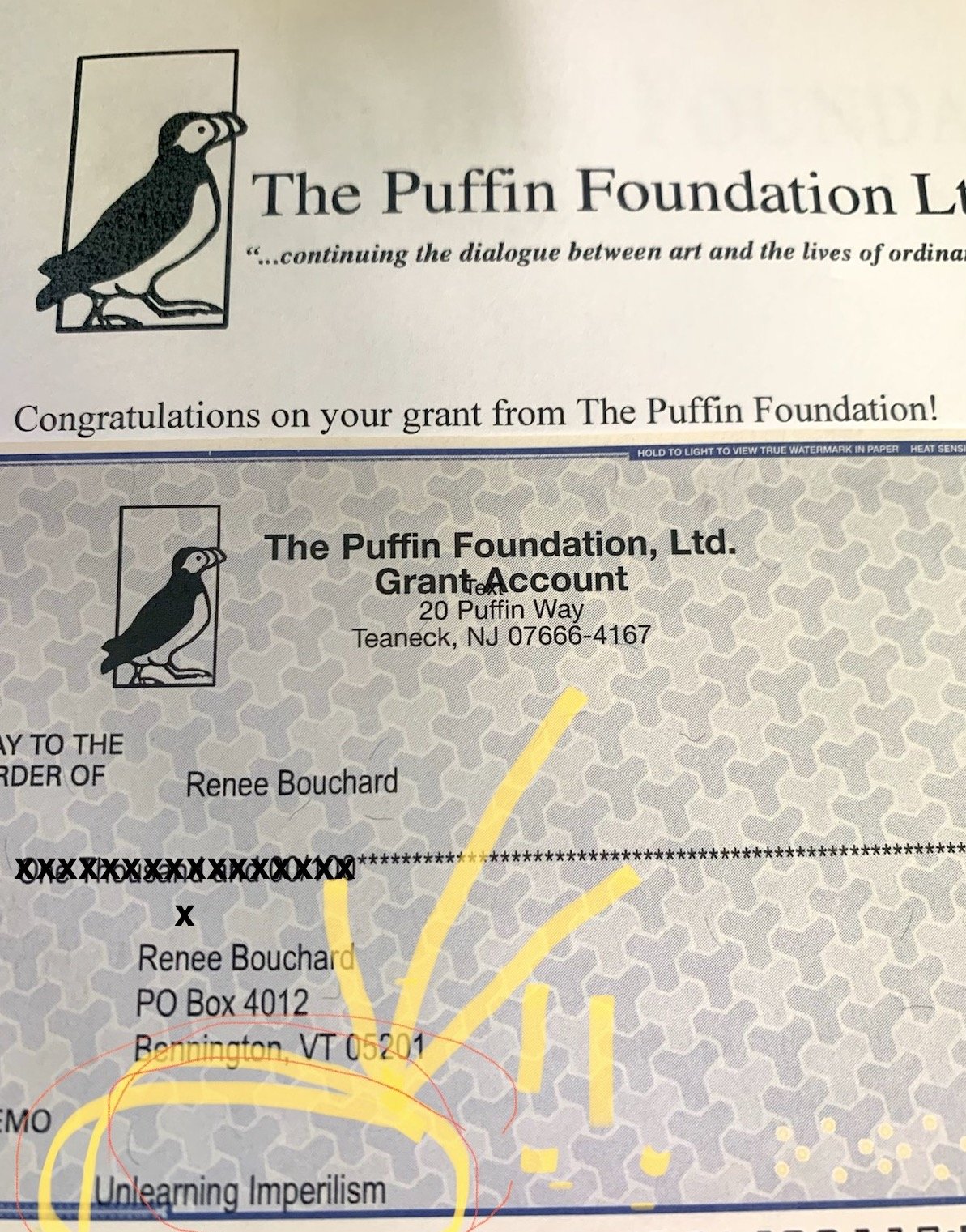The Unlearning Collective has been developing and sharing knowledge acquired through reading and discussing Potential History: Unlearning Imperialism. Our weekly meetings and conversations have evolved into a desire to transcend our shared experience with the text into visual form using video, performance, works on paper, and painting. We investigate what it means to unlearn: as processes of recognizing and unlearning imperialism, patriarchy, and dominant ideologies through collaborative art projects. We seek to challenge imperial thought and influences embedded in everyday experiences to remedy the normalization of violence through language, historical narratives, and social, economic, and political othering.
Renée Bouchard’s poetic interiority as a painter is a practice involving observation, memory, and intuition rendered in portraits and figurative tracings exploring intersectional identity. She explores the use of color as if it were a machine intersecting color theory and human rights since one color can’t exist without another. The focus is on the interaction of colors versus color in isolation.
In Ariella Azoulay’s lecture at VCFA on her book Potential History, she asked us to reimagine the role of the cameras’ shutter. Azoulay posits that the shutter creates imperial violence by drawing “three dividing lines: in time (between before and after), in space (between who/what is in front of the camera and who/what is behind it), and in the body politic (between those who possess and operate such devices and appropriate and accumulate their product and those whose countenance, resources, or labor are extracted)” (5). Julie Krishnaswami's work focuses on the concept of the interruption. Following Azolay’s identification of the three dividing lines in time, space the body politic, Julie plans to highlight how the contemporary moment constitutes an interruption to “normal” life, pregnant with anti-imperialist possibilities. In addition, Julie will use her training as a legal scholar to continue her investigation into how female-identified parties speak before official governmental bodies, considering the dynamics, operations, materiality, and physicality of this speech.
Photography has been central to capturing people, places, and experiences to support the imperialist project of entitlement to physical space, material objects, actual bodies, and human labor. Azoulay reminds us “that the click of the camera’s shutter acts like a verdict,” where only a limited amount of information is captured and appropriated (xvi). What happens before and after the camera’s shutter closed? What is outside the camera’s frame in the distance and how does that impact the bodies inside and outside the frame? Whose languages and words can be heard? We aim to reach an audience that includes people on the fringes outside the mainstream frame. Matthew’s project explores physical space through the lens of human trafficking, migration, photography, and video, addressing the inherent imperial violence in public spaces through image and text. His project unpacks the complex process of how this violence is naturalized through and within the urban landscape.
